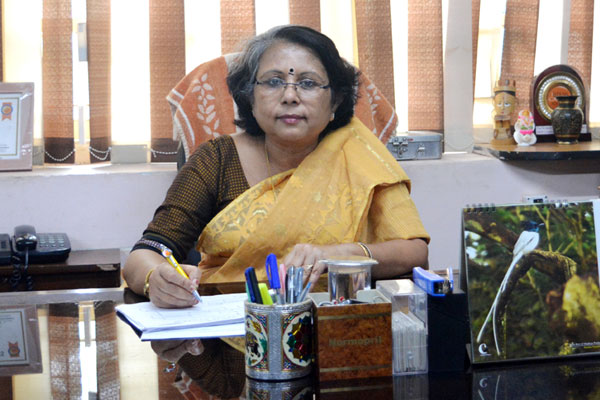- Home
- The College
-

Dr. (Mrs). Atashi Karpha, Principal
From The Principal's DeskThe College
-
- Administration
- Academics
- Departments
-
Honours [Arts]
Honours [Science]
-
- Admission
- College Codes
- Activities
- Facilities

